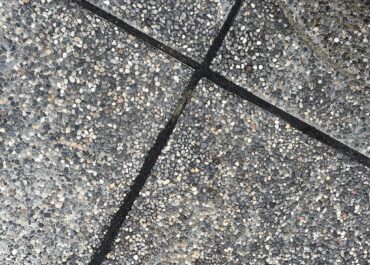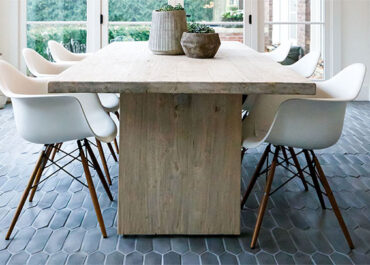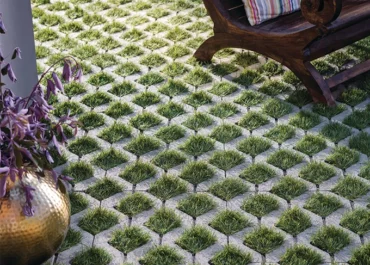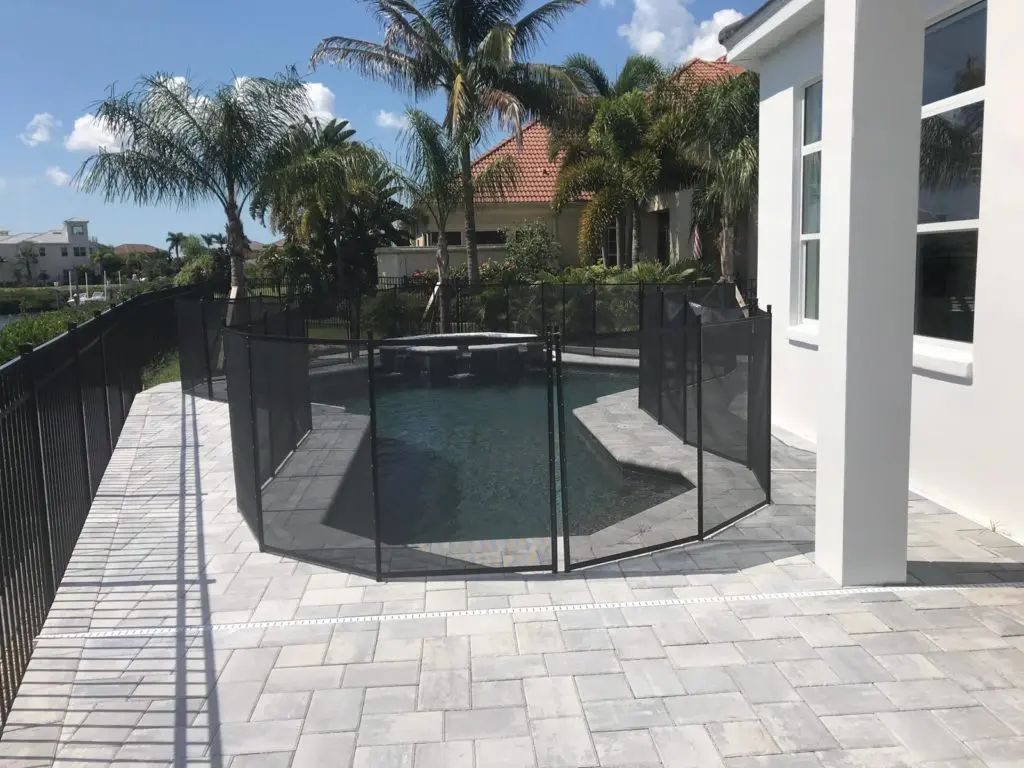
Nowadays, even though paver projects are limitless – ranging from backyard patios to containing walls – some are more prominent than others. That is the case for pool decks, which are part of many American homes and rarely constructed with another material. After all, having a pool area requires extra measures of safety, especially if there are children in the family, and pavers have been the perfect candidate for that during the past decades. Are there pool pavers that don’t get hot, though?
Considering how often pool areas are exposed to sun rays, that is a factor to highly take into account when devising a project. But don’t you worry! In this article, we’ll answer that question as best as we can, as well as list some paver options you can get from your nearest provider.
Are there pool pavers that don’t get hot?
Well, yes and no. There’s absolutely no element in the hardscape industry that’s immune to heat. However, there are indeed some products that reflect and absorb less sunlight, turning into bearable and comfortable options for a pool deck.
With that said, which are the pool pavers that don’t get hot, then? Before we discuss the best options available, we must exclude some of the worst right off the bat.
You see, most homeowners only know the 3 popular types on the market – them being porcelain, concrete and brick pavers. The first one is actually a great addition for any project (more on that in a bit), but the last two do not at all serve as pool pavers. Why, you ask?
Concrete pavers are no better than concrete itself; you must remember how hot school courts felt back in the day, right? Especially during the summer. Brick pavers are no different, either – even when sealed, their porous surface retains so much heat that it becomes impossible to stand for long periods of time, let alone barefoot.
Why you should choose the right pavers
Let’s quickly go over why choosing the ideal pavers is important to a long lasting investment.
Like we mentioned, pool decks require meticulous planning before setting off the paper. In contrast to pathways, for example, their surroundings are constantly wet – and unless it’s a covered pool, the pavers are also prone to heat up under sun exposure.
Water and heat leave us with two main problems: the need for a non-slippery surface and the risk of burning our feet. That’s where pavers come in. When we compare them with classic construction flooring such as concrete or wood, their practicality and cost-benefit become clear as day. Acquiring the right kind of pavers will get rid of both problems at once, which is something you might be interested in for the long run.
5 best options for pool pavers
After reading the previous section, maybe now you have a general idea of what purpose our pavers must fill.
To finish this train of thought, the main factor to influence heat absorption has to do with color. As you might know, lighter shades accumulate less temperature than darker shades, so the latter is usually avoided here – as you can see on the list below.
- Porcelain
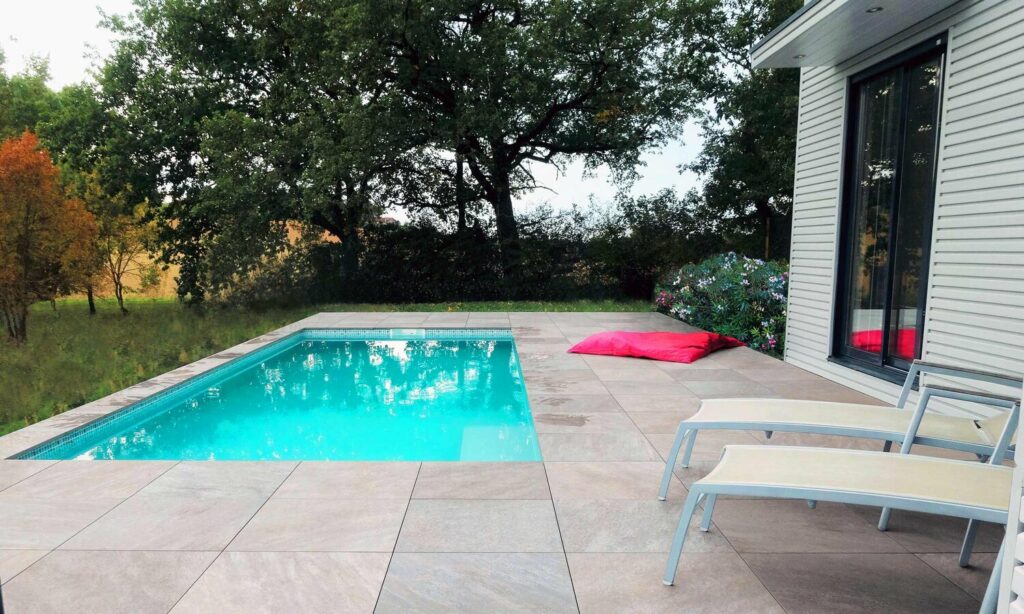
Porcelain pavers are famous for their durability, beauty and non-porous surface, which are all the attributes we are looking for. They don’t need sealing to properly work and their top-notch quality is almost indestructible. Add that on top of creative colors and shapes and you have paradise.
For further details, check out our complete guide for pool decks.
- Limestone
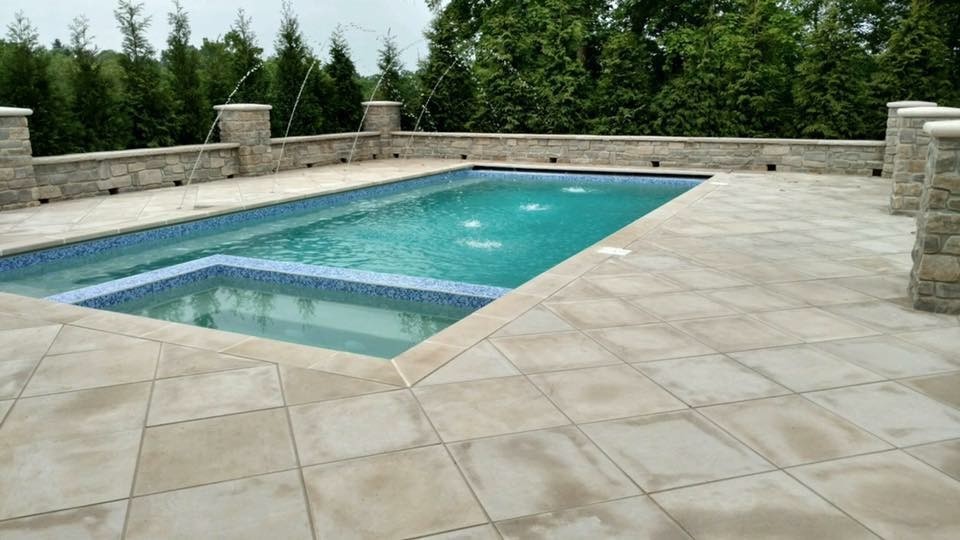
Limestone pavers are natural stones that reflect light rather than absorbing it, keeping your feet burn-free. Also coming in a variety of tones to match your desired aesthetic, limestone is a timeless option that will probably outlast the house itself.
- Travertine
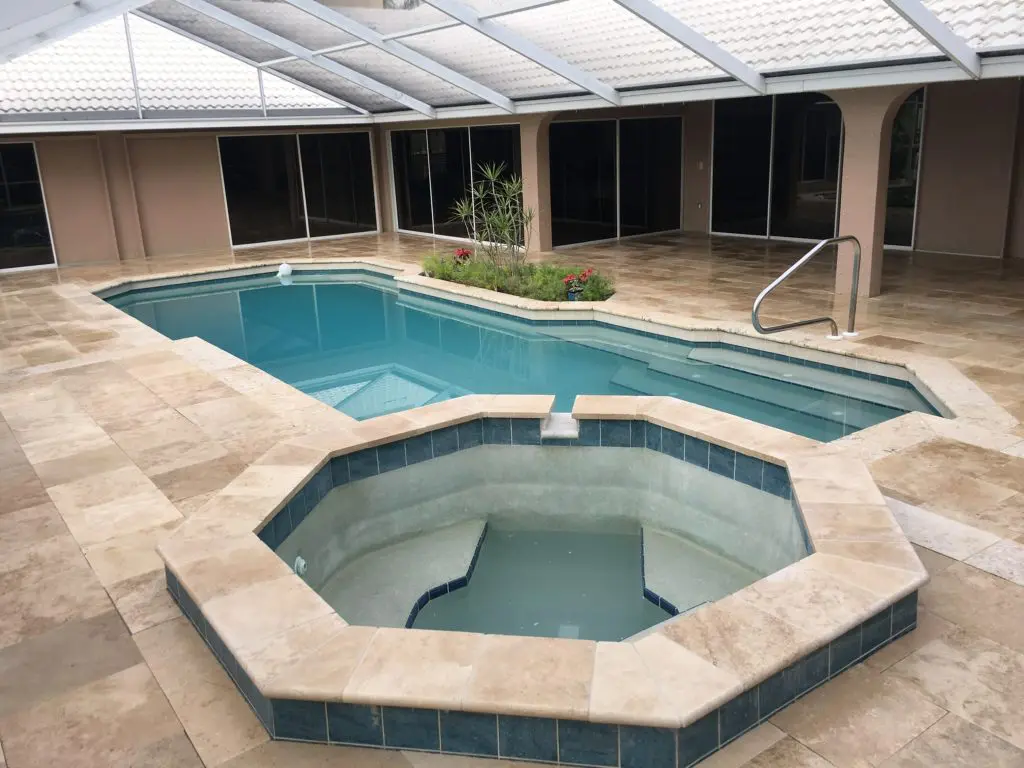
Overall, a top choice. Known as the king of pool decks, travertine pavers are the pool pavers that don’t get hot. The luxurious grays, beiges, whites and reds have the ability to pass the heat down to the earth below, creating the dream ambience for family gathering and fun times.
- Light Marble
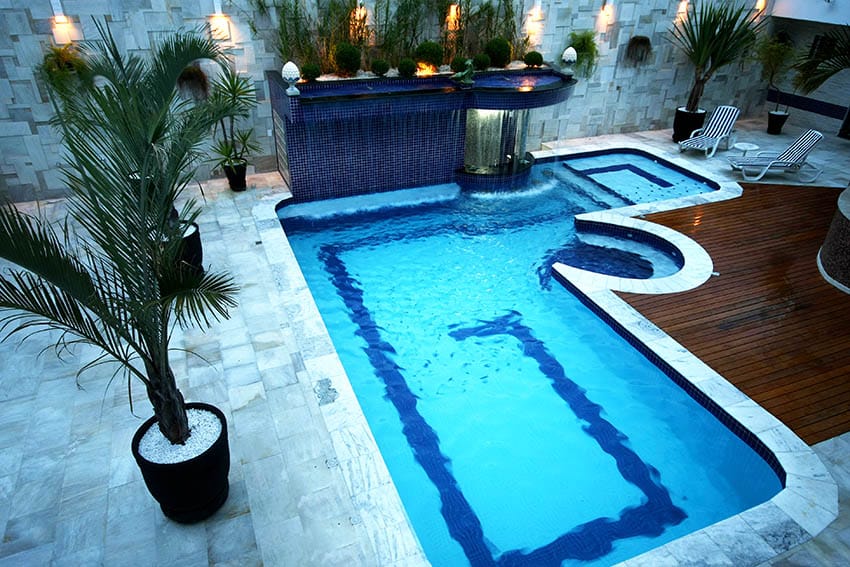
Light marble pavers are an inferior version of travertine, but do the job nonetheless. All in all, a great deal for people searching for the peculiar tones that only marble can offer.
- Exposed Aggregate
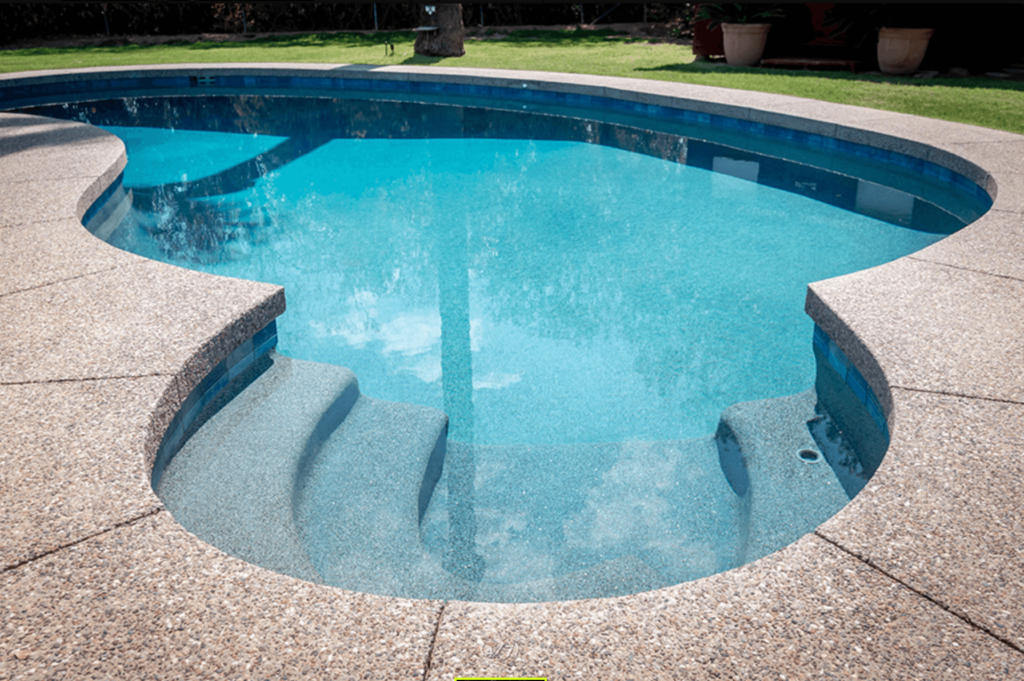
Exposed aggregate pavers are hard-wearing, providing a superior traction that prevents slips and falls above all. Similarly, their wide array of colors and styles can personalize your outdoors and private pool.
Get unlimited supply with Eagle Pavers!
As a branch of Eagle Stones, our team specializes in paver supply and installation around the county of Sarasota and Manatee, Florida. In case you’re near us, don’t hesitate to give us a call so we can get started on your pool deck (or any other project) with a free estimate!
Click here to view the full online catalog – we’ll be waiting for you to reach out.


